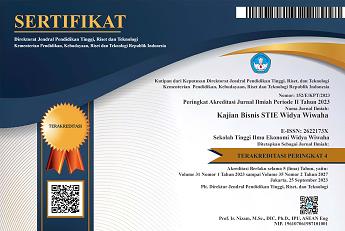ANALISIS ATAS TEMUAN BERULANG BANTUAN KEUANGAN PARTAI POLITIK DI KABUPATEN TEMANGGUNG
DOI:
https://doi.org/10.32477/jkb.v29i1.234Keywords:
Repeated finding, Stewardship theory, Compliance Theory, Political PartyAbstract
This research aims to provide an overview of the accountability process for the financial assistance from political party (banparpol) in Temanggung, analyzing the cause of repeated findings in the report of Banparpol in the respective district, also identifying the efforts made by the recipients in respond to the repeated findings. This research employs qualitative approach and case study as the research design, with two political parties, A and B, as the object of the research. The data was collected by documentation and interview. It involved the chairperson of the party, the treasurer, and parts of the partys organization as participants. The result shows that the reporting process of financial assistance in both parties, A and B, was conducted by forming a committee for every activity related to the funding of Banparpol. Each committee reported all of the activities from implementation of the event, collecting evidence and documentation of the event, and made event summary. After this report is completed, the treasurer will verify and compile everything which will then become Banparpols report. The factor causing repeated finding on the respective policial parties report were the human resources lack of understanding upon administrative process, the inconsistencies of political partys regulation, budget disburstment which is processed in the end of the year, lack of motivation and the inability to obey the regulation. Furthermore, different judgement among the examiner also becomes influencing factor. Another caus is cultural dimensions that appear in political party B, which are disobedience and subborness. Efforts made by political party A to avoid the repeated findings are choosing a regular place which has already had a well structured administration and conductiong revisions based on the recommendation of the Audit Board (BPK). The first strategy is also performed by political party B, in addition to recruiting LO to provide assistance in understanding political partys accountability rules and consulting to Kesbangpol. This research uses Stewardship theory and compliance theory in identifying factors contributing to the repeated findings in Banparpols acountability report in Temanggung district.
Downloads
References
Downloads
Published
Issue
Section
License
Copyright (c) 2021 Endah Aprimulki, Abdul Halim

This work is licensed under a Creative Commons Attribution-ShareAlike 4.0 International License.









